Beth Matheson and Mike Reed grew up on either side of the Ruahine Range on the North Island of New Zealand. They found each other 14 years ago and, united by a love for helicopters and nature, have been life and business partners ever since. In addition to running an aircraft maintenance company and doing helicopter work around the world, they own a 25-acre slice of paradise on the South Island of New Zealand: Abel Tasman Estate.
Abel Tasman Estate is composed of three vacation rentals, a food forest, olive grove, gardens, and five paddocks where their neighbor grazes sheep. I was able to see it first-hand last December while I was in New Zealand visiting my sister. Since Beth and Mike’s primary residence is in Canada, my sister Heather works as their local partner for their Airbnb’s, managing the property and keeping the homes and gardens ready for guests.
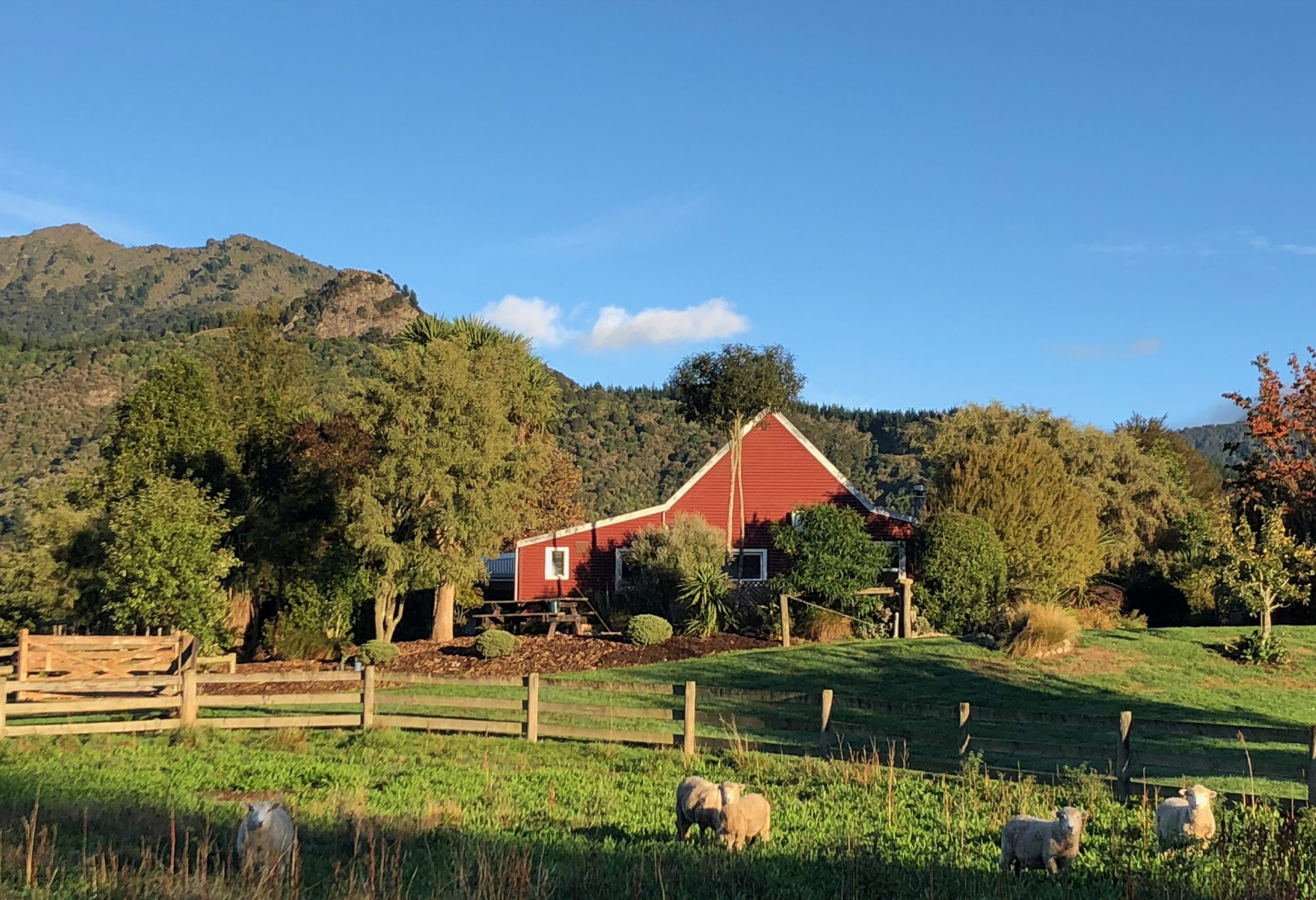
When Beth and Mike decided to make Canada their home base, they thought they would try renting the houses as farm stays. “We thought we’ll be lucky if we get one or two bookings a year, but let’s just give it a go,” said Mike. “Honestly within the first day of it going live we’d got someone who booked for three weeks, and it’s just gone on from there.” They found Heather through a friend of a friend and offered her what she calls her “blessing job.” It was simple at first: keep the homes clean and tidy. However, Heather described that she and her husband Phil “have always been invested in any property we live on, whether we rent or whatever, if we get involved in a place, we really like to make it look the best we can. I think coming to it with that mindset helps us enjoy our job and put more of ourselves into it than just getting the work done.”
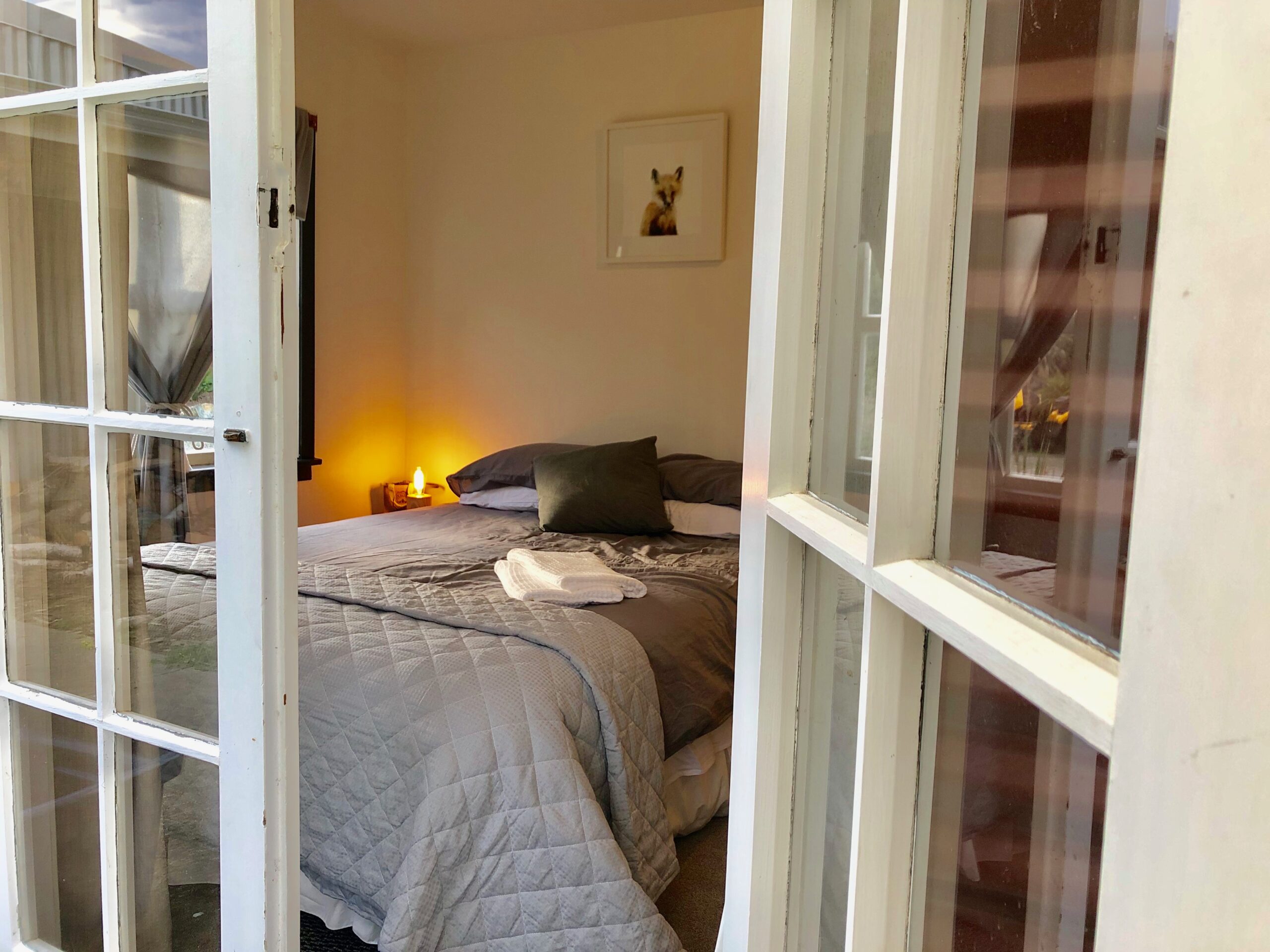
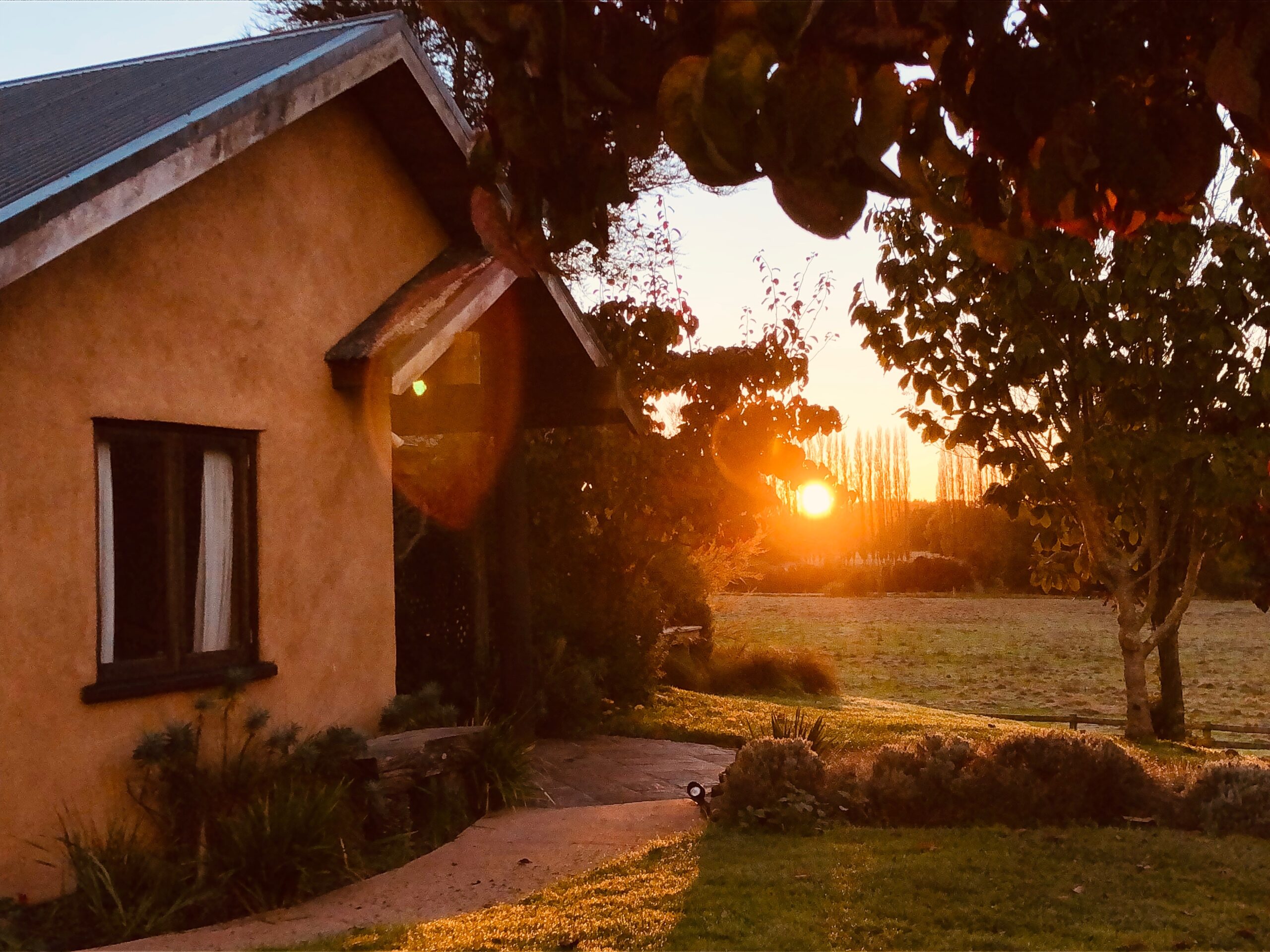
I wondered how managing a short-term rental property worked with the owners living 7,500 miles away, and Beth called it a “well-oiled machine.” Beth handles the online bookings and has developed systems for communicating bookings with Heather. Heather drives to the property just before the guests arrive. “I get the house completely ready, vase of flowers on the table, leave a light on if it is winter and might be dark when they come, put the heater on in the bedroom if it’s cold, and that’s it. Then I come back once they are booked out.” Heather mentioned that what makes it all work is the excellent communication she and Beth have, particularly since they are in very different time zones. “I feel like we are a team side by side even though we are oceans apart,” she said.
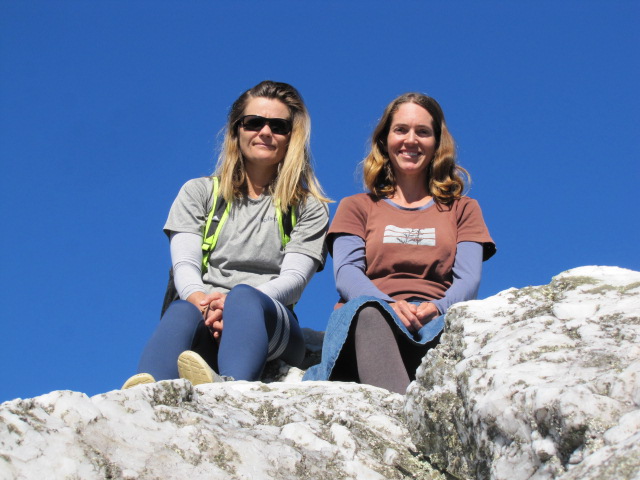
Beth feels like the “blessing job” is very mutual. “Owning a property like this from the other side of the world is only made possible because of the care, love and attention that such a good manager like Heather puts in every week. Of course, the farm has a special magic to it, but the only reason why we and all the guests get to enjoy it so much is thanks to Margy who looked after the property for the first few years until she retired and ever since then, Heather and her family.”
The main attraction for vacationers to stay in this picturesque valley has been changing over the years. At first the main draw was the location at the base of Kahurangi National Park and enroute to the Abel Tasman National Park which drew hikers and outdoor enthusiasts. But now, Beth noticed that “as the world starts falling more and more in love with the concept of getting back to self-sustainability and caring more about where your food comes from it’s actually mattering a lot more that it is a working farm, people are commenting a lot about the livestock and about how it made their kids whole trip to be able to pet the sheep.” In addition to the working farm aspect, the food forest, and the gardens, the Motueka River is only a few minutes’ walk away, where there are perfect areas for swimming, fishing, and feeding the eels.
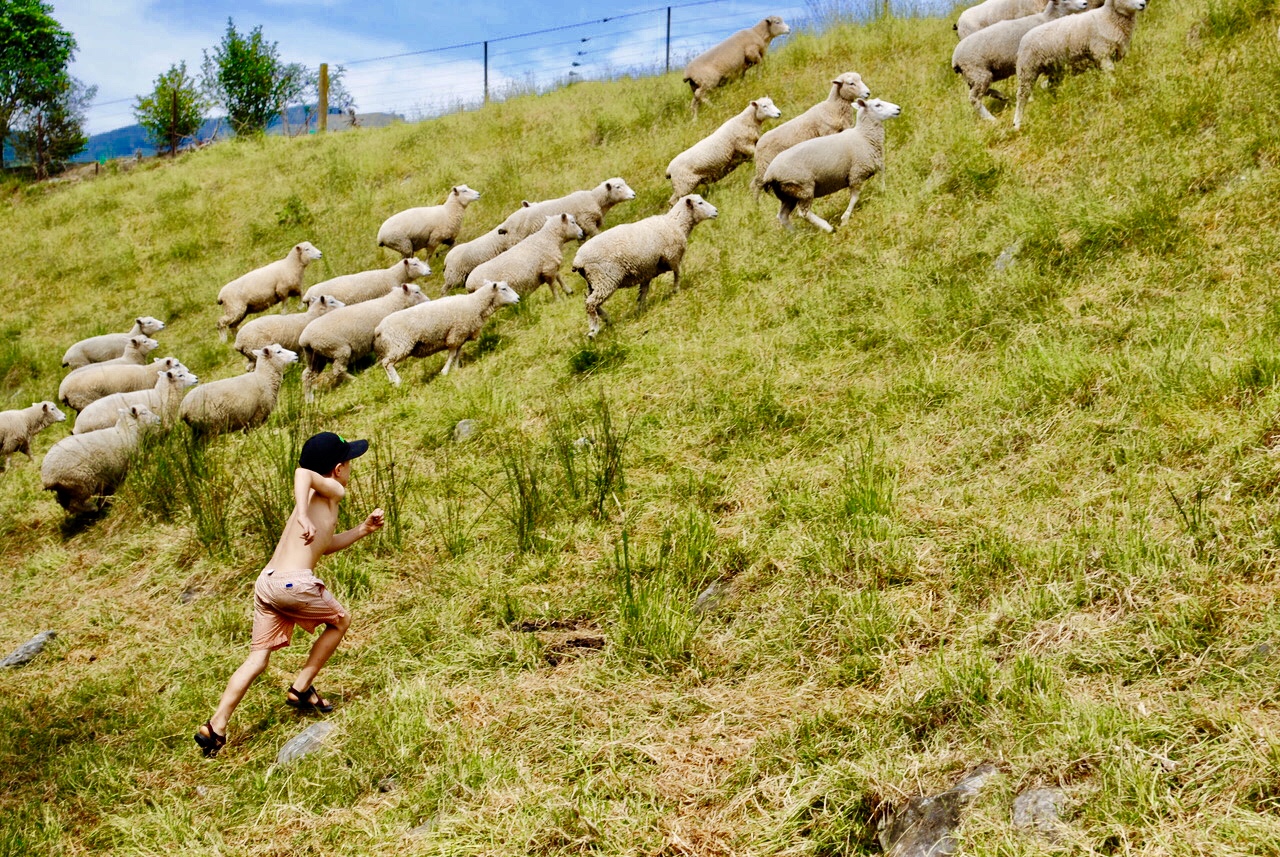
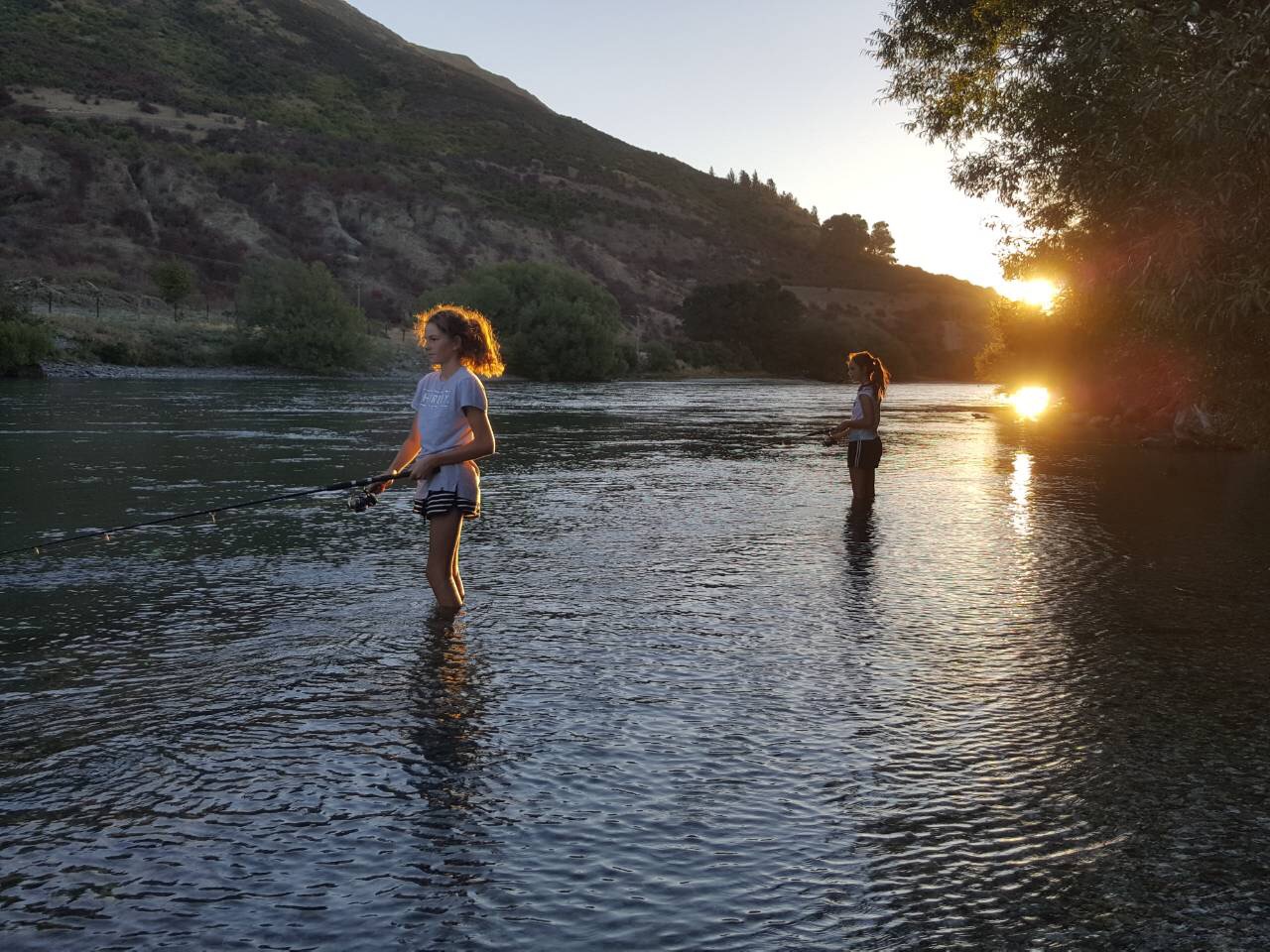
The food forest has been a pet project for Heather, Mike, and Beth beginning with an off-handed comment from Mike that they would like to have fruit trees on the property. Heather had been intrigued by the idea of food forests and asked if they wanted “an orchard with straight rows and beautiful grass or a wild tangly food forest, and they said we’d love a food forest please,” Heather smiled. They worked together to create what is now a lush and abundant area of nature: fencing in a third of an acre on a hillside, taking out the non-native hardwood trees, and filling it with 40-50 fruit trees, berries, and self-seeding edible plants. Heather does weed control of highly invasive weeds like thistle, adds compost by each tree annually, and harvests the produce, but for the most part she says the area takes care of itself. The concepts she is utilizing in the food forest of no dig, permaculture, and companion planting are “old ideas, they are sensible, and if it is done well, it is almost lazy gardening. It is less work than tilling and spraying your weeds the way that people accept gardening now.”
Heather was delighted by the abundance of wildlife that arrived soon after the food forest was underway. “It was amazing, within the first couple of years we have quail nesting, we found a hedgehog nest, we found a pūkeko nest which is a native bird, it’s just a little ecosystem, and it didn’t take long at all. We get flocks of 50 native pigeons (kererū) coming through. It’s really wonderful to see – you just do a little bit and then everything in nature helps and it starts to grow together without you needing to do much.”
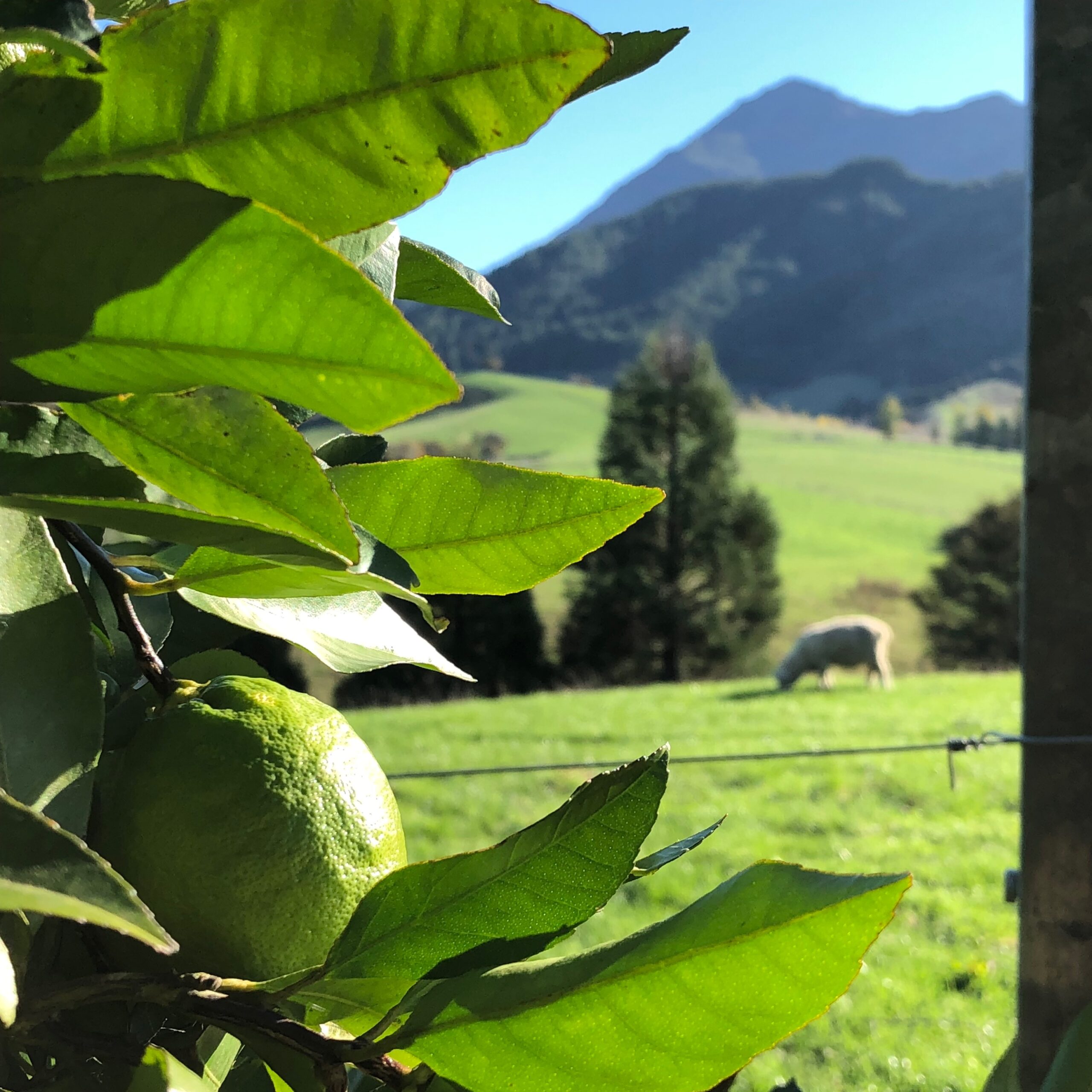
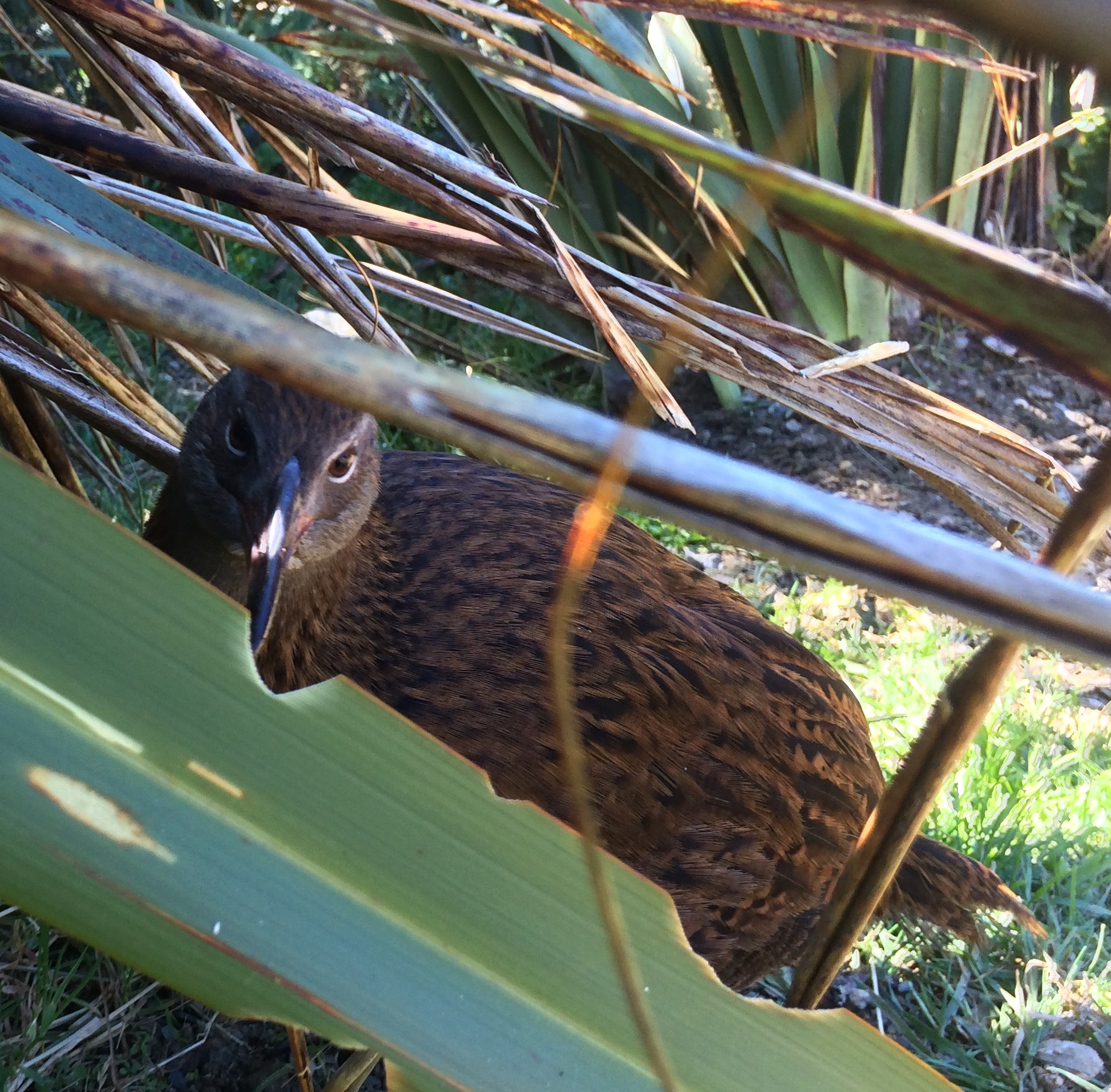

Whether people are there for outdoor adventure or to escape from the city, relax, and unplug, the tranquility and raw beauty of Motueka Valley is unparalleled. As Mike said, “We have people stay from so many different walks of life, but they make very similar comments. The sense of peace comes up over and over.” Mike added that at its essence Abel Tasman Estate is about “getting back to nature and realizing that it’s not a bad thing to just put your feet up and enjoy what is there. It’s not all about driving around all over to find this and see that, you can just immerse yourself in a bit of nature, watch the birds in the yard, have your coffee and just relax.”
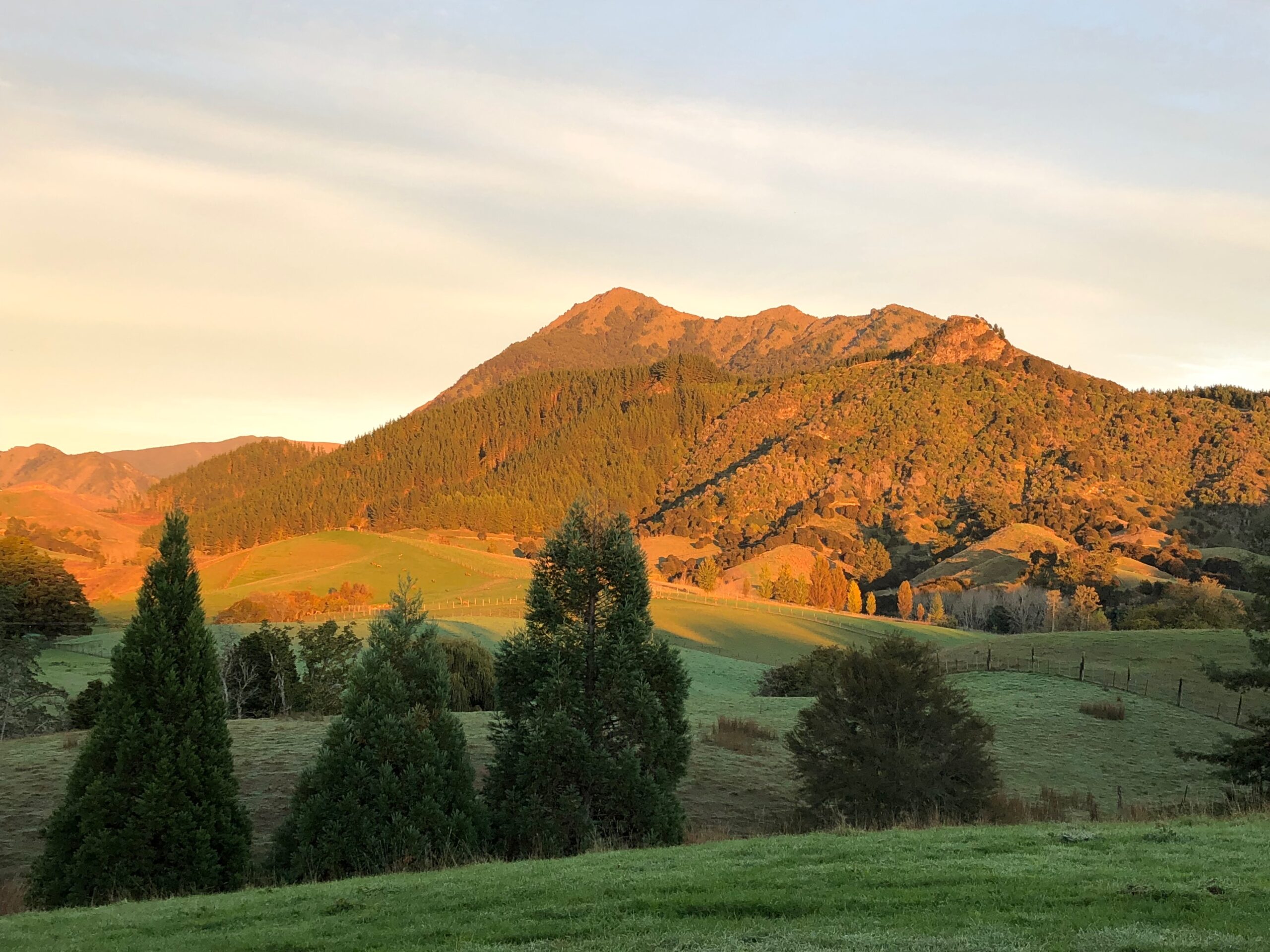
Beth and Mike have a heart for using their property to help the local community. As cost of living rises, they are careful to keep their prices low enough so that families can take their kids on holiday. “We are happy whenever we see bookings for ordinary kiwi families just taking their holiday,” said Beth. “We see the same families come back year after year for Christmas, it’s like their holiday home, we will have someone book their 10-day break during the school holidays, and as soon as they finish up at the farm, they are already booking next year’s spot.”
They also donate the Airbnb’s to the Heart Foundation for Kids so that parents can have a place of respite to relax and be in a healing environment. “The kids are having to go through all this trauma, a lot of time in hospitals, I could only imagine what the parents must be going through,” said Mike. They let the Heart Foundation know it’s available particularly for the parents, so they can have a place to spend some quiet time. “We just had a family there with a 9-year-old daughter with major heart issues. We got them massages, they relaxed, watched the sheep, they absolutely loved it. For us, doing stuff like that is very rewarding, and the one thing it does is it makes you realize again just how lucky it is to have a place like that,” said Mike.
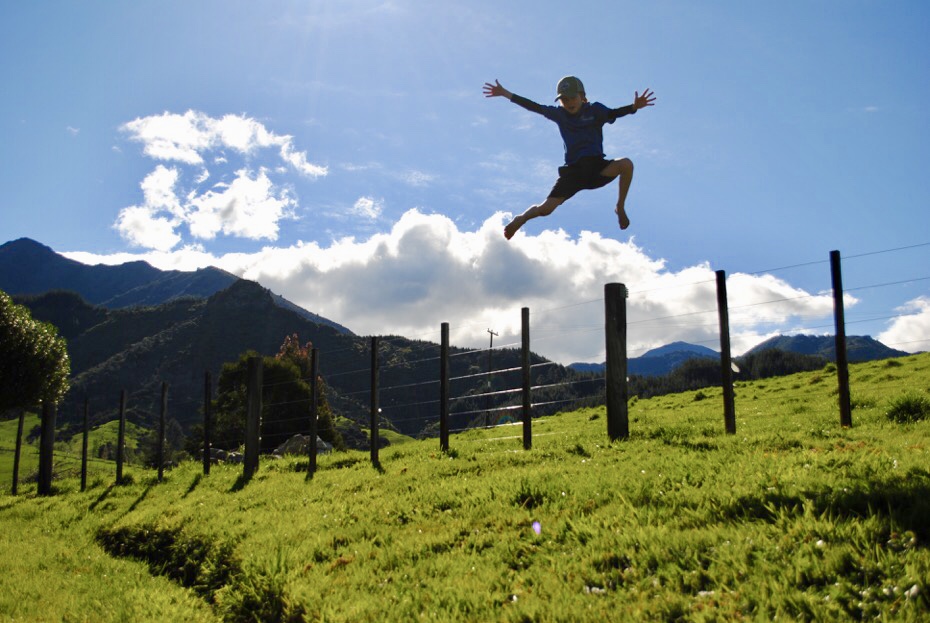
Each year, Beth and Mike come home to New Zealand for a few weeks and get to experience for themselves the space they have designed. Since aviation is a highly regulated industry, this property is where they get to express their creativity. Beth laughed, “Whenever we get there, I don’t see Mike for days because he’s off chain sawing, he’s got the digger, he’s on the mower. We both have all these projects we want to do, and we only get through 10% of them but we are having fun.”

They strive to personalize their farm stays, saying that during their frequent stays in Airbnb’s while they travel for work, they love it when the owners have added personal touches to their properties. “We feel that it is sort of the inside track, you are really staying in someone’s home, even though you might not meet them, you can see how they’ve decorated the house and see where they would recommend you get breakfast or coffee,” said Beth. They make sure to feature their favorite locales, letting guests know where they can go for a hike or a meal. “It makes us feel good that a lot of the feedback we get is that people love the personal touches. For a few years, everywhere we traveled we would bring back little things for the houses. Whenever we are there, we throw our heart and soul into it, and it is nice to know it’s perceived, people like being the recipients of it. It’s almost a little bit like they are locals themselves, they feel like they are part of the community and people, particularly city people, really enjoy that.” Heather echoes that sentiment, saying that “when I clean the house, I put a lot of myself into it. I love that people are coming maybe with family to relax and have peace and time out, and I am able to give a gift though I may never see them or meet them. I put a lot of love into making it tidy, making it homey and comfortable, and just the little special extra touches – guests absolutely love it.”

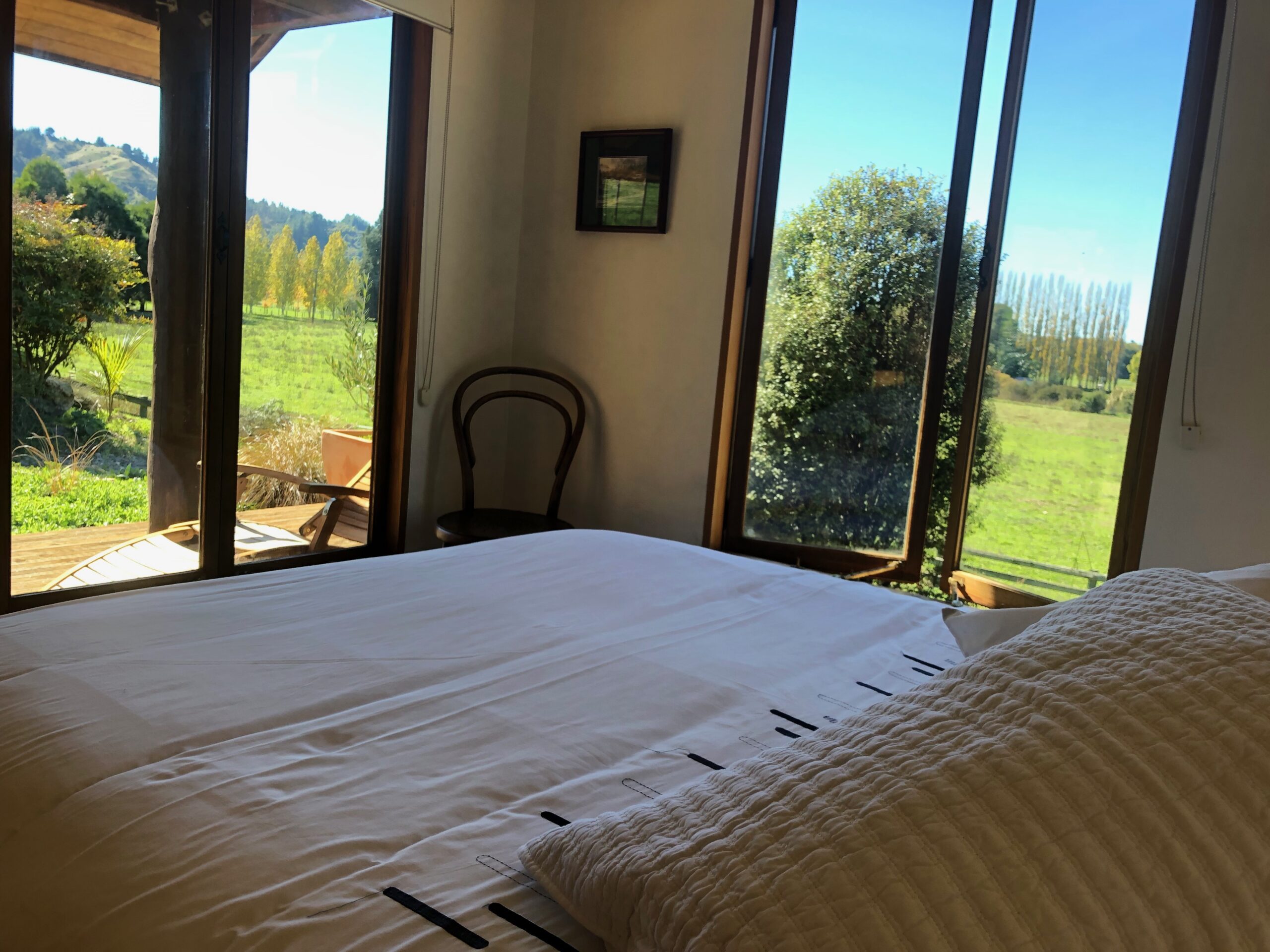
Beth and Mike spoke frequently about the joy that Abel Tasman Estate brings. “The property is so magical – it has always been about other people, this incredible experience that we are able to share. When we get back, our favorite thing to do is sit down, get a cup of tea, and we just read each other the visitor book. It gives us so much joy,” said Beth.
Peace. Joy. Love. Far from cliché, these are the words I heard most about this sweet piece of land. As I looked around the gardens and heard the songs of the native birds, I saw a beautiful manifestation of individuals working together with integrity to honor a natural way of life and share it with others.
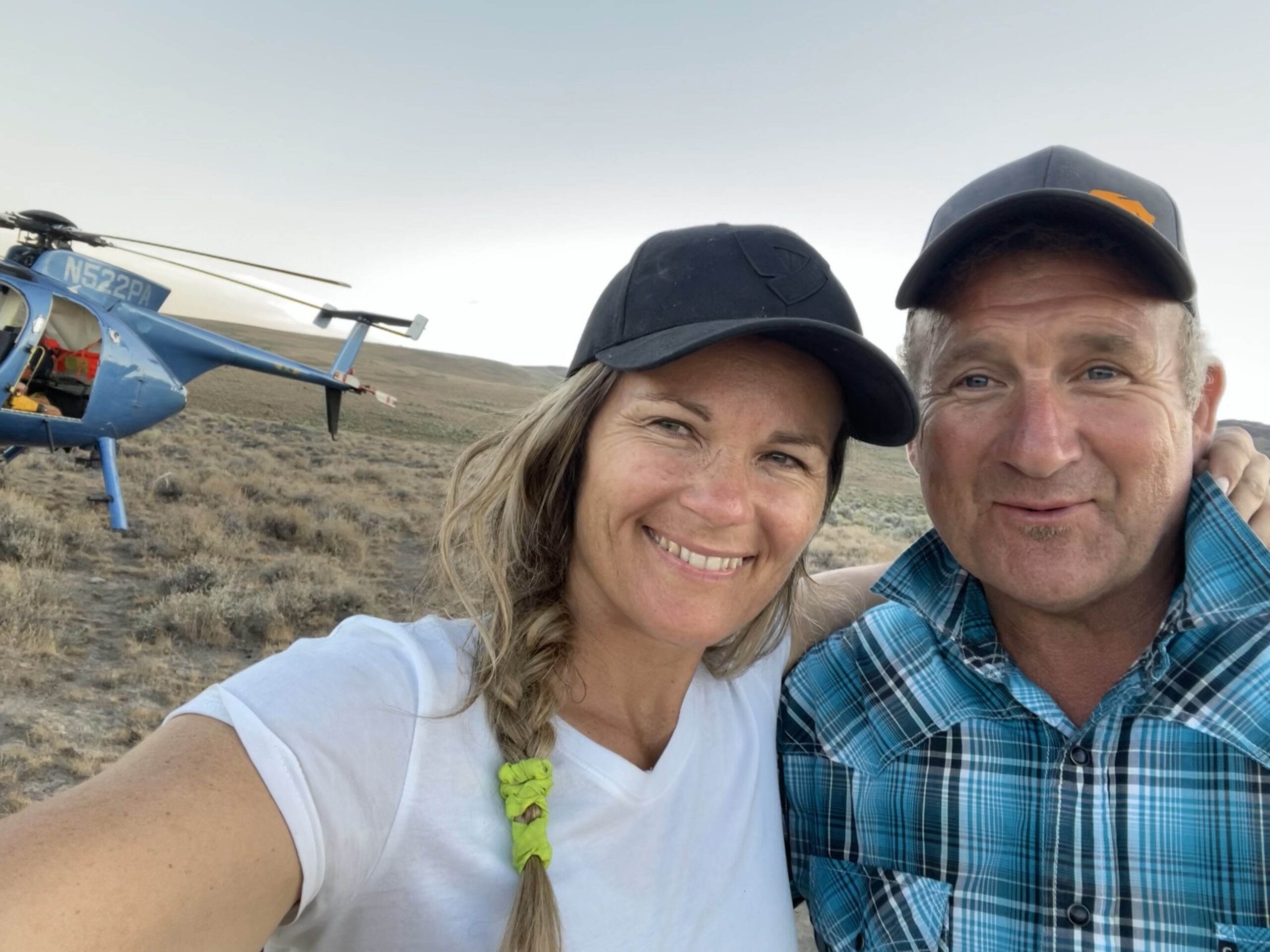
Mike Reed
“There is something about nature that really resonates with people. We get so caught up in life and stress and the busyness of things. It’s not until you get back to nature and spend time there that you realize – we are nothing special, we are part of it, and we are meant to be part of it.”
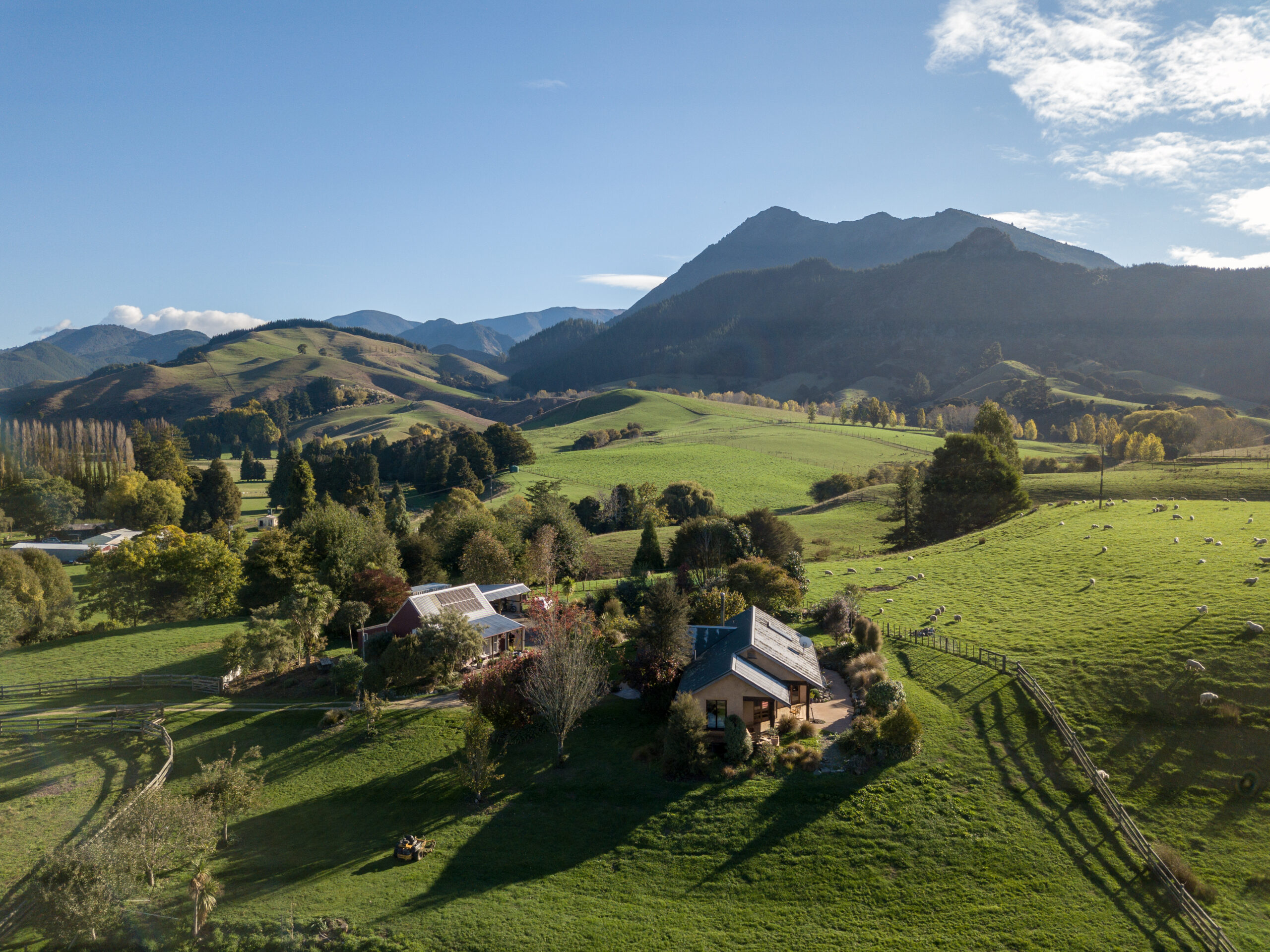
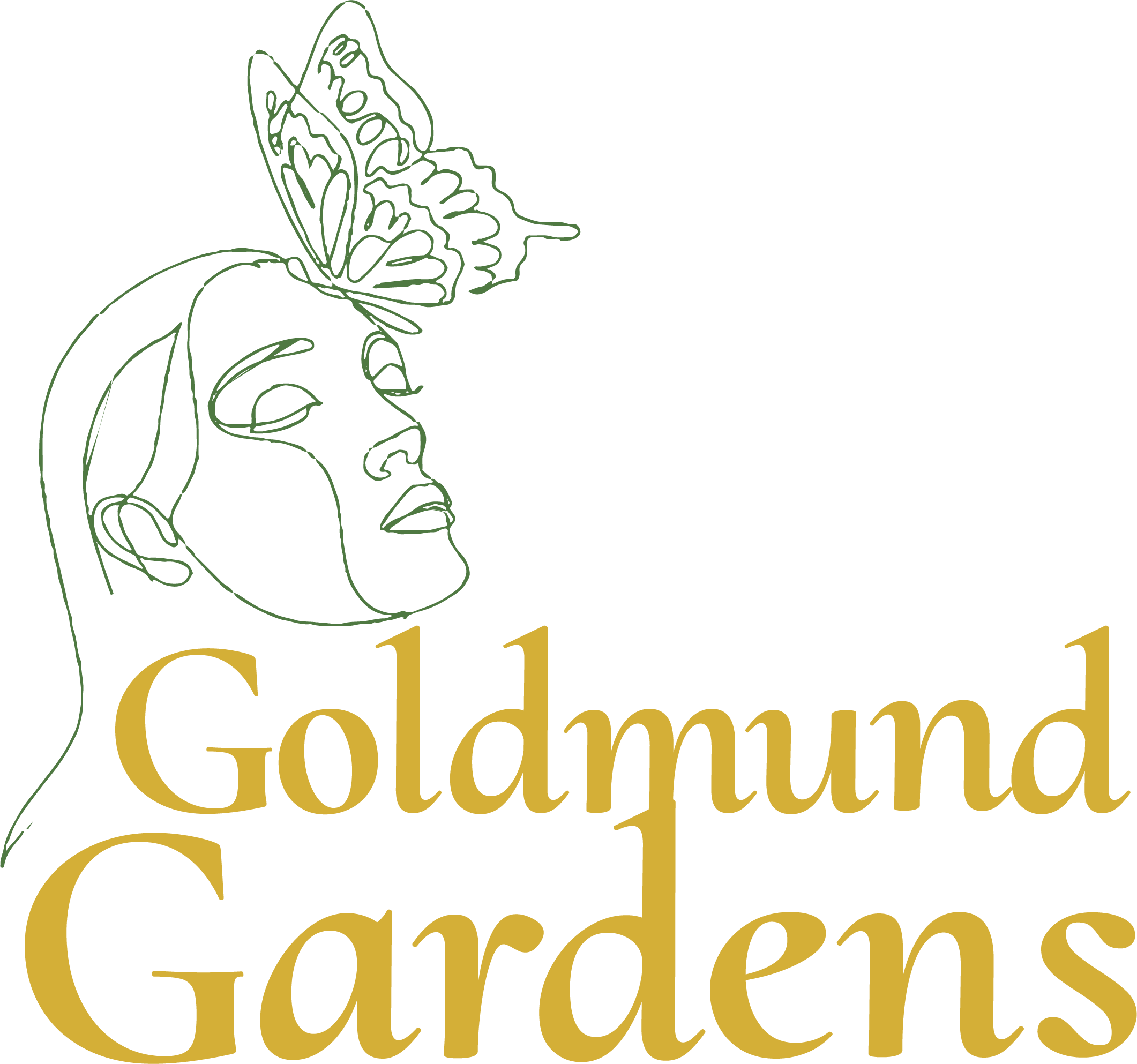
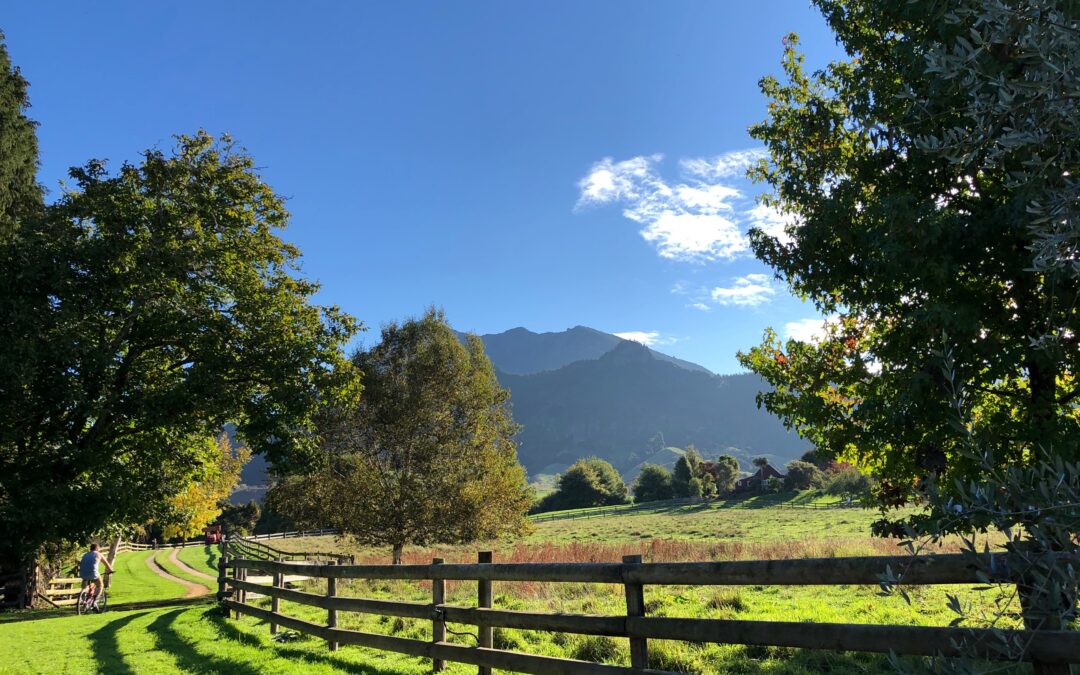
What a superb story and a telling of it!